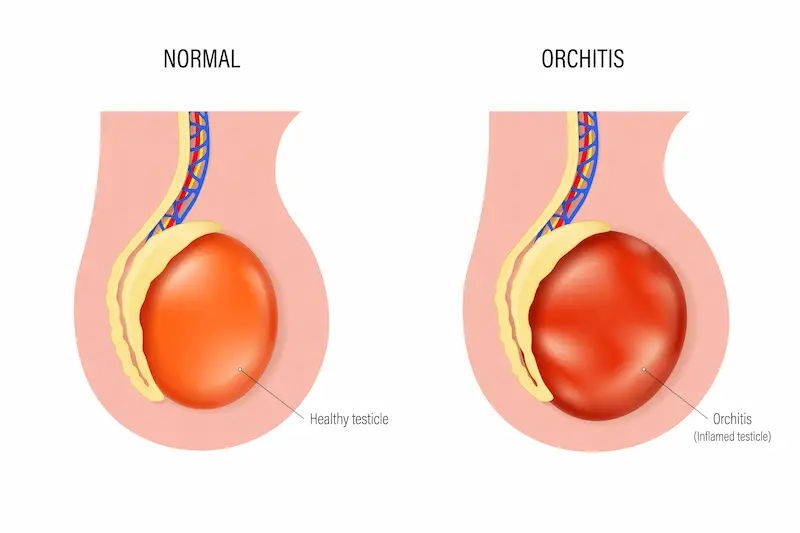Overview of Vector-Borne Diseases and Prevention
Explore the basics of vector-borne diseases, including how they spread through insects like mosquitoes and ticks. Learn about common illnesses, symptoms, and effective prevention and control measures.

Written by Dr. J T Hema Pratima
Reviewed by Dr. D Bhanu Prakash MBBS, AFIH, Advanced certificate in critical care medicine, Fellowship in critical care medicine
Last updated on 13th Jan, 2026

Vector-borne diseases are illnesses caused by pathogens (germs) that are transmitted to humans through the bite of infected vectors like mosquitoes, ticks, fleas, and flies. These diseases are a major public health concern, especially in tropical and subtropical regions. Some common vector-borne diseases include malaria, dengue, Lyme disease, chikungunya, and Zika virus.
In this article, we’ll discuss what vector-borne diseases are, their symptoms, causes, and most importantly—how you can protect yourself and your loved ones from them.
What Are Vector-Borne Diseases?
Vector-borne diseases are infections transmitted by living organisms (vectors) that carry harmful germs. These vectors do not cause the disease themselves but act as carriers, spreading infections from one person (or animal) to another.
Common Vectors and the Diseases They Spread
1. Mosquitoes: Transmit diseases like malaria, dengue, chikungunya, Zika virus, and yellow fever.
2. Ticks: Spread Lyme disease, Rocky Mountain spotted fever, and tick-borne encephalitis.
3. Fleas: Responsible for plague and murine typhus.
4. Sandflies: Transmit leishmaniasis.
5. Blackflies: Cause river blindness (onchocerciasis).
Symptoms of Vector-Borne Diseases
Symptoms vary depending on the disease but may include:
Fever (often high in malaria and dengue)
Headache and body aches
Fatigue and weakness
Skin rashes (common in Lyme disease and Zika)
Joint pain (especially in chikungunya)
Nausea and vomiting
Swollen lymph nodes
Some diseases, like dengue and malaria, can become severe and even life-threatening if not treated early.
Consult Top Specialists
How Do Vector-Borne Diseases Spread?
These diseases spread when an infected vector bites a person, transferring the germs into their bloodstream. Factors that increase the risk include:
Living in or travelling to tropical areas where mosquitoes and other vectors thrive.
Poor sanitation and stagnant water, which serve as breeding grounds for mosquitoes.
Lack of protective measures like mosquito nets or repellents.
Climate change, which expands the habitat of disease-carrying vectors.
How to Prevent Vector-Borne Diseases?
Prevention is the best way to stay safe from these infections. Here are some effective strategies:
1. Protect Yourself from Mosquito Bites
Use mosquito repellents containing DEET, picaridin, or oil of lemon eucalyptus.
Wear long-sleeved shirts and pants, especially during dawn and dusk when mosquitoes are most active.
Install window and door screens to keep mosquitoes out.
Sleep under insecticide-treated mosquito nets in high-risk areas.
2. Eliminate Mosquito Breeding Sites
Remove stagnant water from flower pots, coolers, and old tires.
Cover water storage containers to prevent mosquitoes from laying eggs.
Clean gutters and drains regularly to avoid water accumulation.
3. Stay Safe from Ticks and Other Vectors
Wear light-colored clothing to spot ticks easily.
Use tick repellents when hiking or camping in wooded areas.
Check your body and pets for ticks after outdoor activities.
4. Vaccination (Where Available)
Vaccines are available for some vector-borne diseases like yellow fever and Japanese encephalitis.
If travelling to high-risk areas, consult a doctor about necessary vaccinations.
5. Seek Medical Help Early
If you experience symptoms like high fever, severe headache, or body pain after a mosquito or tick bite, consult a doctor immediately. Early diagnosis and treatment can prevent complications.
When to See a Doctor?
If you or a family member experience:
Persistent high fever
Severe headache, muscle pain, or joint swelling
Unusual bleeding (in dengue)
Confusion or difficulty breathing
Do not delay medical care. Many vector-borne diseases can worsen quickly if untreated.
How Apollo24|7 Can Help?
If you suspect a vector-borne infection or need preventive advice, Apollo24|7 offers:
Expert consultations with doctors online or in-person.
Diagnostic tests for malaria, dengue, and other infections.
Vaccination services for travellers.
You can book a consultation or lab test easily through the Apollo24|7 app or website.
Conclusion
Vector-borne diseases can be dangerous, but with the right precautions, you can significantly reduce your risk. Simple steps like using mosquito repellents, eliminating stagnant water, and wearing protective clothing can make a big difference.
Stay informed, stay protected, and don’t hesitate to seek medical help if needed. Your health is in your hands!
Consult Top Specialists
Consult Top Specialists

Dr. Rajib Ghose
General Physician/ Internal Medicine Specialist
25 Years • MBBS
East Midnapore
VIVEKANANDA SEBA SADAN, East Midnapore

Dr Vinay Kumar A V
Nephrologist
8 Years • MBBS, MD - General Medicine, DM - Nephrology
Bilaspur
Apollo Hospitals Seepat Road, Bilaspur

Dr. Ajay K Sinha
General Physician/ Internal Medicine Specialist
30 Years • MD, Internal Medicine
Delhi
Apollo Hospitals Indraprastha, Delhi
(200+ Patients)

Dr. Hariprasath J
General Physician/ Internal Medicine Specialist
19 Years • MD (Gen Med), FCCP, Dip (Diabetology, UK)
Chennai
Apollo First Med Hospitals P H Road, Chennai
(225+ Patients)

Dr. Imtiyaz Khan
General Physician/ Internal Medicine Specialist
6 Years • MBBS
Bengaluru
Apollo Clinic, Sarjapur Road, Bengaluru


 for Health.webp)

